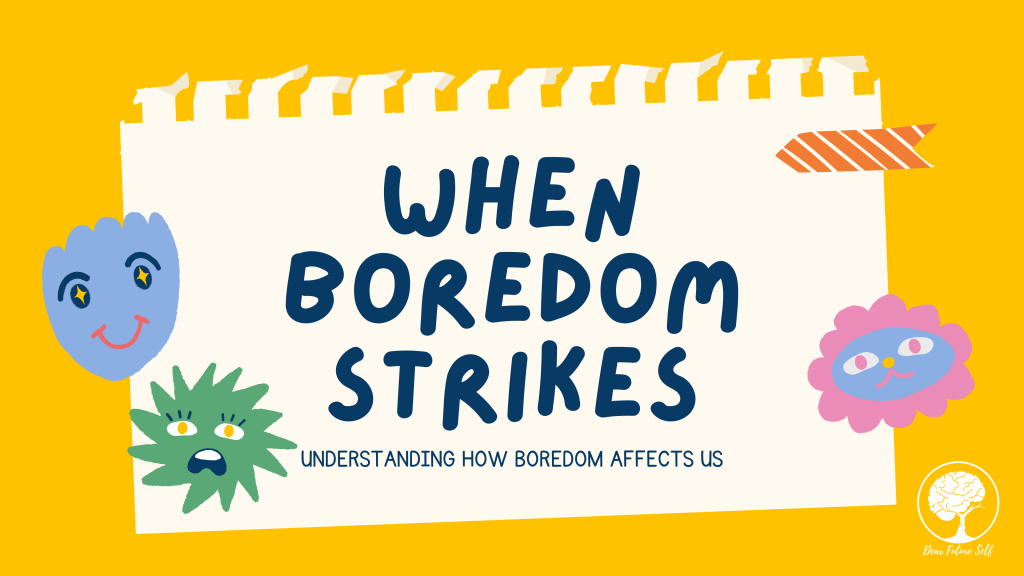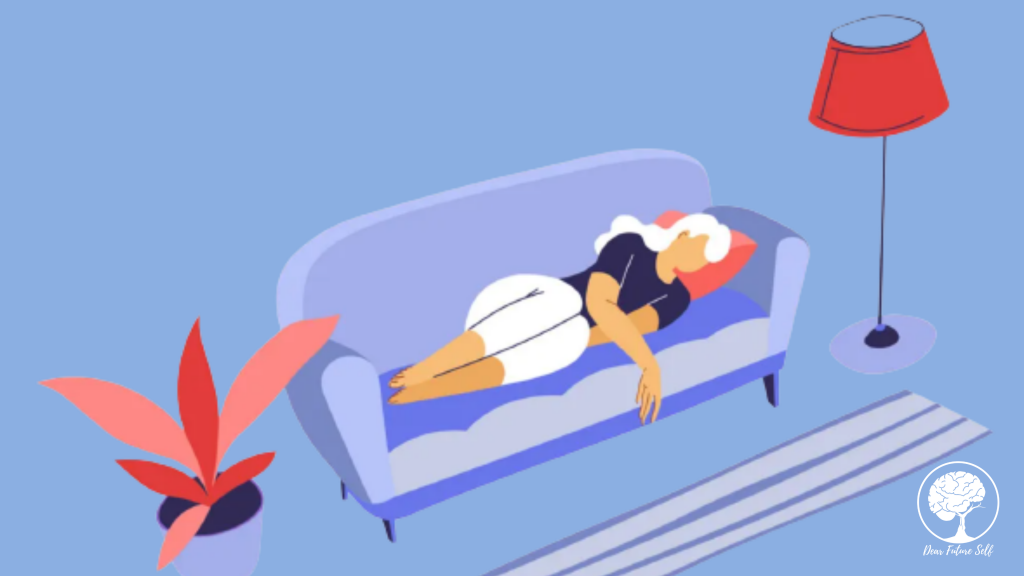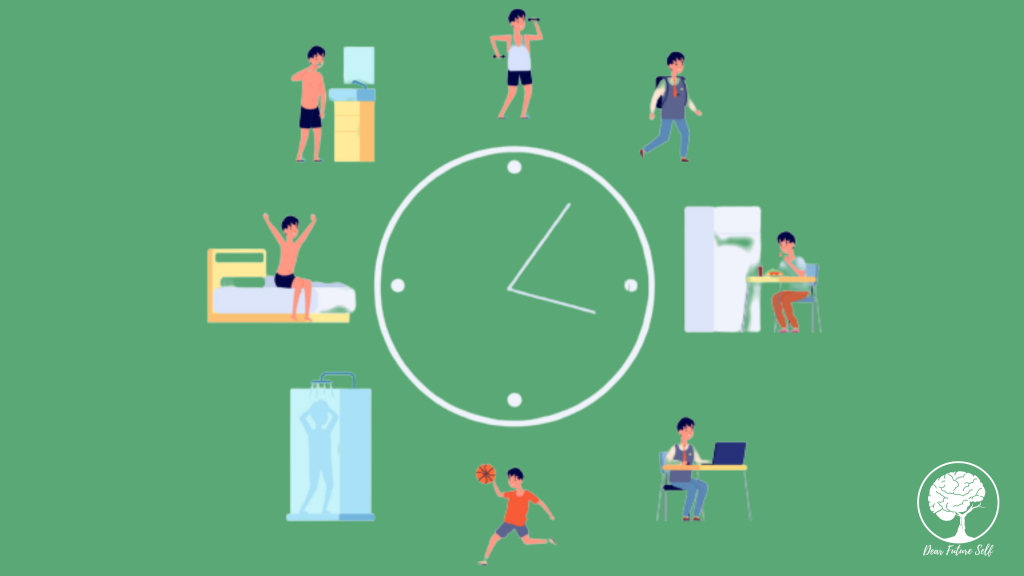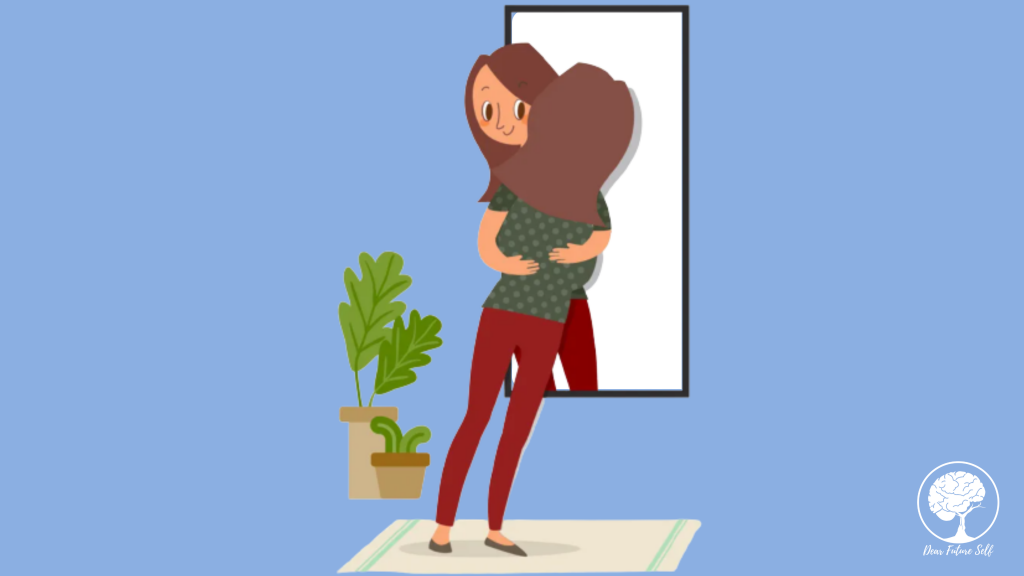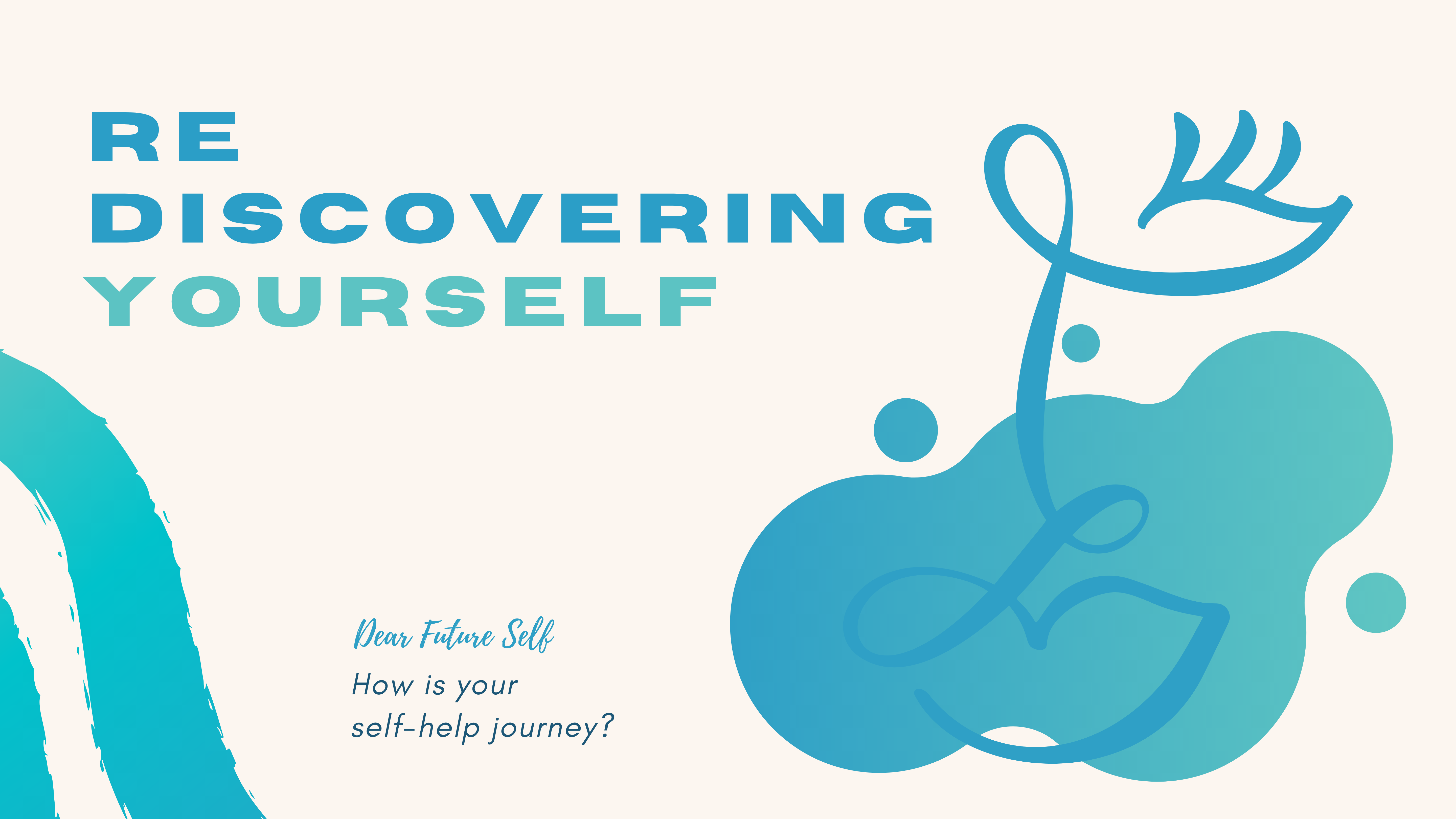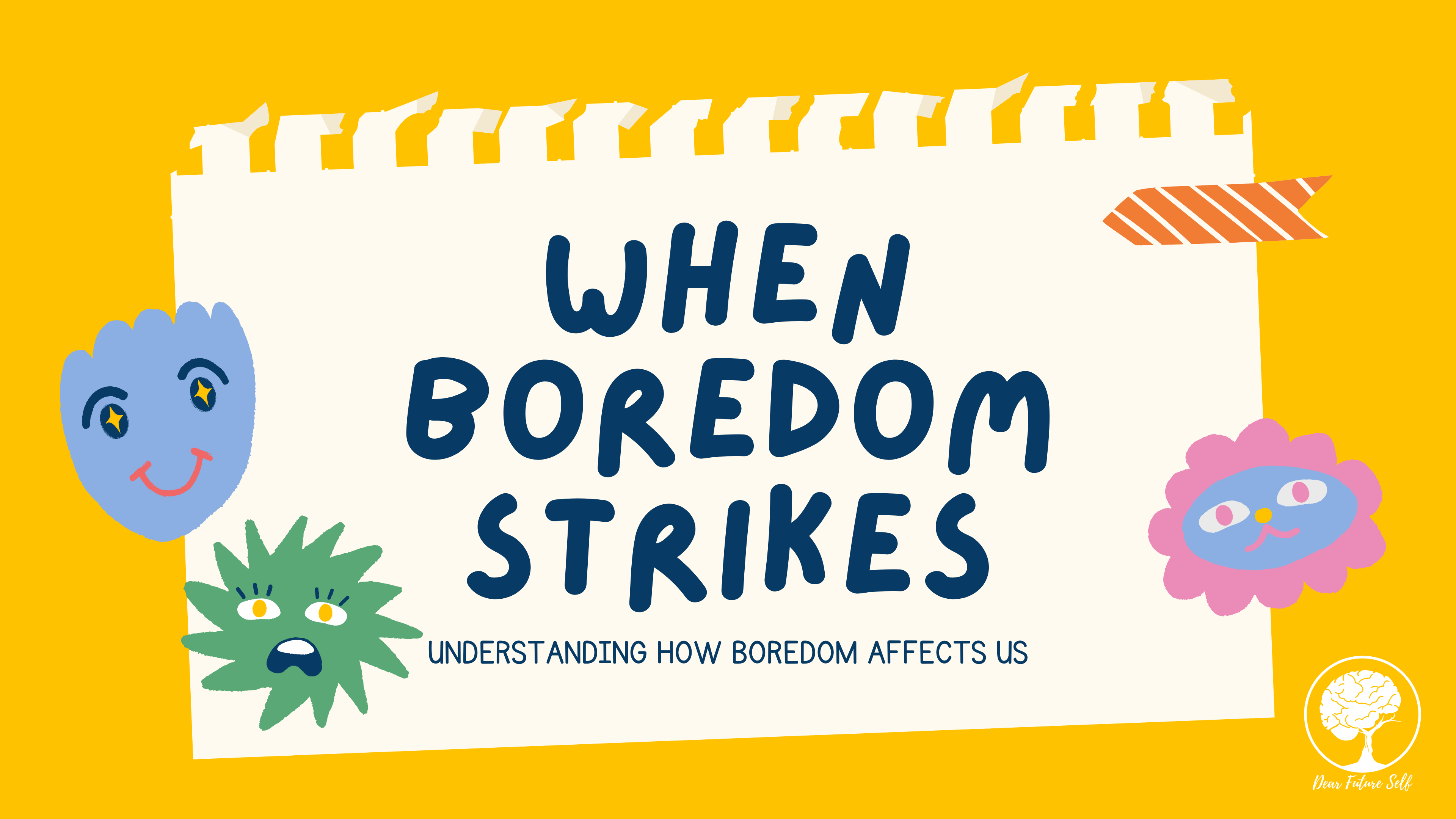
16 Sep WHEN BOREDOM STRIKES & HOW IT AFFECTS US
UNDERSTANDING HOW BOREDOM AFFECTS US
“Bored, I’m so bored, I’m so bored. So bored…”
Like these lyrics from Billie Eilish’s song Bored, many of us experience boredom regularly. It can feel like having no energy for the things we usually enjoy, feeling stuck in a place without stimulation, or experiencing emptiness in our minds and hearts. These moments can be frustrating because they make it hard to feel like ourselves.
Boredom is defined as a state of weariness and restlessness caused by a lack of interest (Merriam-Webster, 2021). It can also occur when you feel energetic but don’t know where to direct that energy. Sometimes, boredom happens when concentrating on an activity feels difficult. It is a common experience among children and teenagers. People may feel bored especially when they find it hard to engage with their thoughts or feelings (Cherney, 2020).
Negative Outcomes of Boredom
More concerning than the feeling itself is how boredom can affect us over time. Research links boredom to negative outcomes and lower well-being, and it can sometimes lead to risky or harmful decisions.
For example, Sammy Perone, assistant professor at Washington State University, and colleagues found that people who respond negatively to boredom tend to have different brain activity patterns when bored. These individuals are more likely to show avoidant behaviors and have higher risks of depression and anxiety.
Students who frequently experience boredom tend to perform worse academically, pay less attention, and put in less effort. Over time, this increases the risk of dropping out. Teenagers who often feel bored are more likely to engage in smoking, drinking, or drug use. Among adults, boredom has been linked to binge eating, depression, anxiety, and a lower sense of fulfillment. It can also affect safety—bored individuals may react more slowly to unexpected dangers, such as while driving (Coulson, 2019).
What Can We Do to Fight Boredom?
Here are some strategies to help manage and reduce boredom:
1.Make a mental note of why you’re doing something. Boredom often comes from our mindset about what we’re doing. If we understand the purpose behind our actions—whether it’s work, study, or a chore—it can make the experience feel more meaningful.
2. Find a routine or rhythm. Having daily routines creates structure and consistency. When people have regular habits, their days often feel more purposeful, which can protect against boredom.
3. Accept the situation as it is. It’s important not to pressure yourself to constantly stay busy or productive. Allow yourself breaks when you feel restless or disengaged. Recognize that energy and motivation will fluctuate throughout the day.
4. Try something new. Exploring new hobbies or joining clubs and groups can add variety to life and reduce boredom. Whether it’s reading, crafting, sports, or community events, new experiences can refresh your interests.
5. Reconnect with loved ones or make new friends. Social connections can provide support and engagement. Whether through in-person meetups, phone calls, or online platforms, spending time with others helps combat feelings of boredom and isolation.
Among the negative outcome effects of boredom, what habits or behaviors would want your ![]() to avoid doing?
to avoid doing?
References:
Cohut Ph.D., M. (2019, July 9). The Study Premises. Medical News Today. https://www.medicalnewstoday.com/articles/325697
Coulson, J. (2019, February 11). The Case Against Boredom. Institute of Family Studies. https://ifstudies.org/blog/the-case-against-boredom
Giorgi, A. (2017, December 19). Boredom. Boredom: Causes and Treatment. https://www.healthline.com/health/boredom
Merriam-Webster. (n.d.). Boredom. In Merriam-Webster.com dictionary. https://www.merriam-webster.com/dictionary/boredomWestgate, E. C. (2020, March 27). 6 things you can do to cope with boredom at a time of social distancing. The Conversation. https://theconversation.com/6-things-you-can-do-to-cope-with-boredom-at-a-time-of-social-distancing-134734
Self-Help Corner
Seek Professional Help

Gift Certificates & Self-Care Package
Connect with Us


